
Shutterstock.com
Healthcare professionals taking payments from drug companies will need to be aware of new moves towards transparency this year. Disclosure UK, a new database that requires drug companies to declare the payments they make to healthcare professionals, is due to be launched on 30 June 2016. It will record any payments made by companies to healthcare professionals for attending continuing professional development (CPD) events, associated travel and hospitality costs, as well as payments for work as advisers or consultants to companies.
The database follows calls to improve transparency around the often complex relationship between clinicians and companies. The new system, hosted by the Association of the British Pharmaceutical Industry (ABPI), is designed to record declarations of any payments made to healthcare professionals, which could be seen as potential conflicts of interest that may influence a prescribing decision or the giving of clinical advice.
“It’s a big shift; it’s year one,” says Andrew Powrie-Smith, communications director at the European Federation of Pharmaceutical Industries and Associations, the body that came up with the idea for Europe-wide disclosures in 2013.
Powrie-Smith explains that the database is not about the “credibility of individual healthcare professionals”, but rather about the transparency of the relationship. However, he acknowledges that some healthcare professionals may have concerns about how patients will react to the declarations.
There are some 700,000 NHS healthcare professionals in the UK. In 2014, the pharmaceutical industry paid healthcare professionals an aggregate total of £41m for 28,556 ‘relationships’, which at most represents 28,556 individual professionals being paid by 50 ABPI member companies.
A ‘sunshine rule’ will also be introduced in 2016 on all dealings between NHS staff and pharmaceutical and medical device companies, a plan announced by health secretary Jeremy Hunt in August 2015. Under the initiative, NHS staff found to be abusing their position by taking extravagant gifts or hospitality and lobbying for unneeded or overly expensive drugs or procedures could face being disciplined, sacked or even sent to prison.
Several professional bodies representing clinicians are broadly welcoming the arrival of Disclosure UK, encouraging their members to sign up and volunteer any relevant information. But researchers are also trying to better understand the effects such disclosures have on the behaviour of clinicians who declare a financial relationship, as well as the impact on patients who become aware of potential conflicts of interest.
Incomplete disclosure
Because of data protection rules, the ABPI database will only list payments made to individual healthcare professionals in the UK who have given consent for disclosure, and aggregate totals for those who have not.
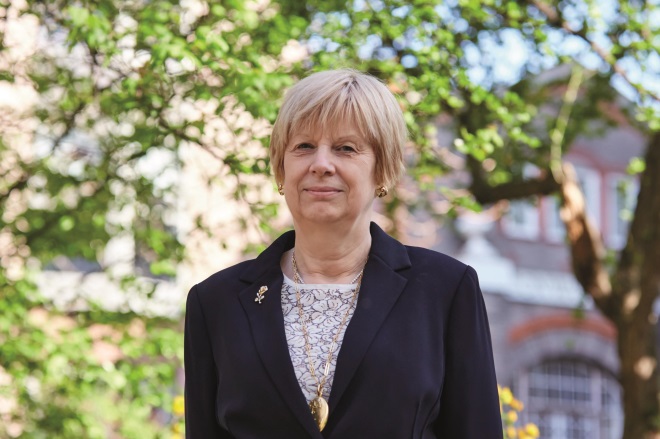
Source: Academy of Medical Royal Colleges
Database doesn’t have the teeth it needs, says Dame Sue Bailey, chair of the Academy of Medical Royal Colleges
“While we think that the database is certainly better than having no database at all, we think that the ‘opt-out clause’ doesn’t give it the teeth that it needs,” says Dame Sue Bailey, chair of the Academy of Medical Royal Colleges, which comprises 20 medical royal colleges and faculties across the UK and Ireland.
Several colleges have told the academy they would like to see a system that allows healthcare professionals to declare that they have not received any income from drug companies.
“Put simply, a doctor who does not appear on the database may be in receipt of a considerable sum or nothing at all and there is nothing to differentiate the two,” says Bailey. “Patients will still be in the dark.”
But Karen Borrer, head of reputation at the ABPI, explains that industry can only verify payments made, rather than confirm when payments have not been made.
Database in practice
The UK pharmacy regulator, the General Pharmaceutical Council (GPhC), says it welcomes initiatives that enhance transparency among healthcare professionals and promote the interests of patients and the public. Its standards on ethics state that pharmacists should declare any personal or professional interests they have and should not ask for or accept gifts, rewards or hospitality that may affect (or be seen to affect) their professional judgement.
“Our standards for registered pharmacies say that the professional judgement of pharmacy staff must not be compromised by any incentives,” says a GPhC spokesperson.
Likewise, the General Medical Council, the UK regulator of doctors, is looking at whether it should require doctors to report conflicts of interest on its register. But in the meantime it expects them to declare conflicts to their patients and to make use of voluntary registers such as ‘Who pays this doctor’ and the upcoming ABPI Disclosure UK database.
Bias: buyer beware
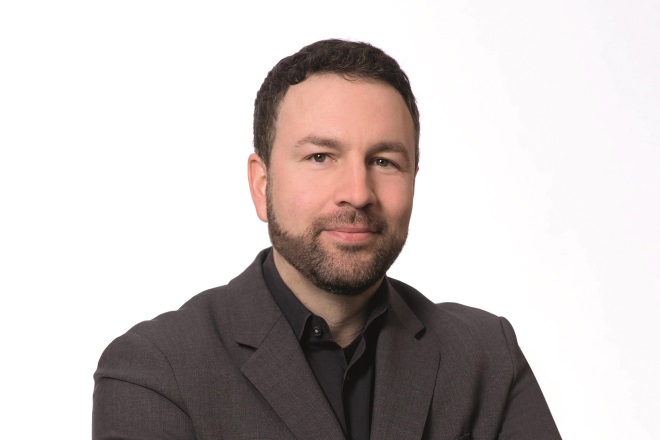
Source: Tony Rinaldo
Disclosure of drug company payments to healthcare professionals often fails to protect against bias, according to Daylian Cain, associate professor of management and marketing at Yale University
Daylian Cain, associate professor of management and marketing at Yale University, Connecticut, and colleagues have found that disclosure of payments can often fail to protect people against bias[1]
.
“We are not against transparency, but it can often fail to be the panacea some take it to be,” he says. “Disclosures can be insufficient warnings depending on who is scrutinising them.
“Moreover, disclosure can sometimes worsen advice if advisers feel that ‘the audience has been warned; caveat emptor.’” Or buyer beware.
Another problem might arise if clinicians see that “everyone else has conflicts” and then see less harm in becoming conflicted themselves.
“For an expert with conflicts of interest, there are often pros and cons to any course of action, and when the financial reward favours the pros, the brain tends to optimistically follow the pros,” says Cain.
Intentional bias, as it relates to healthcare professionals, refers to how a clinician might act to impose their own preferences on a situation. It differs from unintentional, or unconscious, bias, which might occur when the healthcare professional is trying to act in good faith.
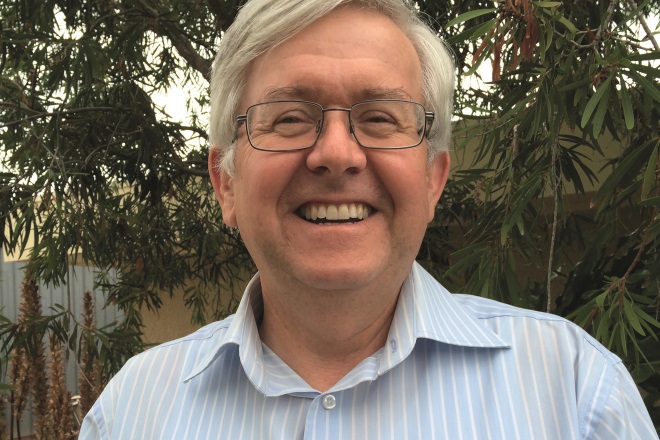
Courtesy of Peter Mansfield
Peter Mansfield, a GP and a visiting research fellow at the University of Adelaide, Australia, says it is very difficult for patients to detect bias in healthcare professionals
“By definition, doctors are aware if they have intentional bias and unaware if they have unintentional bias,” says Peter Mansfield, a GP and a visiting research fellow at the University of Adelaide, Australia, who has researched how doctors’ prescribing can be biased by exposure to drug promotion[2]
.
“Doctors can be infected by either or both types of bias,” he says. “The former is rare. The latter is common and is the much bigger problem.”
Mansfield argues that it is “very difficult, sometimes near impossible” for patients to detect if doctors have either type of bias. Something that is likely to be further complicated by the fact that most patients are unaware of any relationship their doctor may have with pharmaceutical companies[3]
.
“Disclosure of the risk factor (payments from pharma) does nothing to stop bias from occurring and is not a reliable way for patients to decide that doctors are biased,” Mansfield says. “Even if patients could detect bias so as to dismiss doctors it would still be far better to prevent bias occurring in the first place because we don’t have effective treatments for bias.”
Mansfield hypothesises that patients will respond in three ways on learning about payments made to doctors. First, many patients will trust doctors as a group less.
Second, despite having reduced trust in doctors as a professional group, they will still trust their own doctor. “This is because of patients’ overconfidence about their ability to detect intentional bias and lack of awareness of the problem of unintentional bias.”
Third, consistent with the theory of “cognitive dissonance” — an inner drive to hold all our beliefs in harmony — patients who continue to see their doctor after learning that he or she has received payments will change their views to match their behaviour (i.e. they will become less concerned about payments).
Mansfield notes that there has been less research on other healthcare professionals, such as nurses and pharmacists, but if “they are human then what I say about doctors probably applies to them also”.
“I’m not convinced that disclosure of payments is even a step in the right direction,” he says.
Jon Merz, associate professor at the department of medical ethics and health policy at the University of Pennsylvania, has written on conflicts of interest and examined how small gifts can play an important role in promoting friendlier relationships between pharmaceutical sales representatives and physicians[4]
. He says disclosures could lead patients to seek a second opinion, which might be a good thing, but could also add delays and cost to their care.
“Disclosure is only problematic in that it doesn’t solve the underlying problem of conflicts of interest, which is the risk of bias, and disclosure presumes – with no empirical support – that the recipients know what the disclosure means, and what they should do (if anything) in response,” he explains.
Merz believes such biases are extremely difficult to detect on a case-by-case basis, so one cannot reasonably ask whether any particular medical decision is in fact biased.
Benefits of collaboration
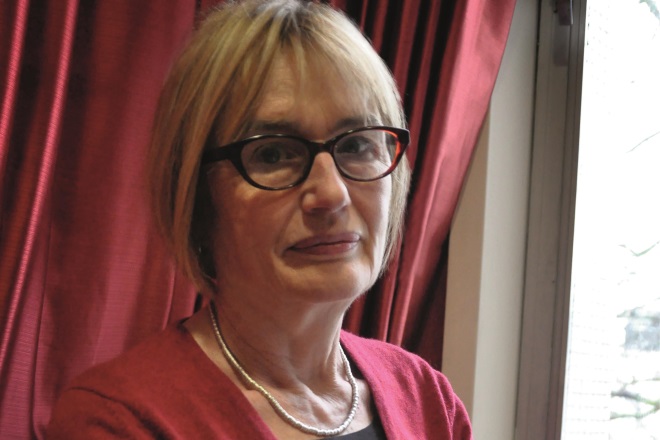
Source: Margaret Johnson
Doctors working with pharmaceutical companies is “vital” for clinical research, says Margaret Johnson, academic vice president of the Royal College of Physicians
Research and development is an important area for collaboration between healthcare professionals and industry, some think. Margaret Johnson, academic vice president of the Royal College of Physicians (RCP) and a consultant physician in respiratory and HIV medicine at the Royal Free Hospital in London, says doctors working with pharmaceutical companies is “vital” for clinical research.
Patients benefit from participating in pharmaceutical industry funded trials, she says. “Many of my patients would not have survived without access to treatments available only via a clinical trial and this applies to many disciplines, not just HIV.”
On companies paying healthcare professionals to be part of advisory board meetings, Johnson seems supportive, too. “This is mainly around how companies develop a drug,” she says. They are seeking advice on which patients to include in clinical trials, about drug interactions and understanding how a particular patient population may respond.
“Pharmaceutical companies may have medics in-house but they are usually out of practice and are not familiar with the latest standards of care for patients, and that is why the advice of outside doctors is sought,” says Johnson. “I think it is a vital relationship as long as we are transparent about it.”
Sharing knowledge is at the heart of the relationship, claim industry proponents, as it helps companies shape their future research programmes, while clinicians build their own understanding of the science behind new treatments.
Powrie-Smith says: “Healthcare professionals are experts and give their time and so are paid for that expertise and time. It’s a two way exchange of information.”
Some people believe another benefit is the facilitation of continuing professional development (CPD). In an ideal world, funding for CPD in the UK would be available through NHS employment, says Johnson. But, in reality, clinicians have access to limited amounts of money for this. “So pharmaceutical companies have filled a gap,” she says. “I don’t see how CPD could be funded [otherwise].”
But Mansfield is sceptical and does not see any good reason for pharmaceutical companies to pay healthcare professionals. “There is a need for doctors or healthcare professionals to be employed to do research and education but these are best done by organisations that are separate from pharmaceutical manufacturing,” he says.
For Johnson, the “key thing is that doctors are transparent and declare their conflicts of interest”.
Will healthcare professionals participate?
The ABPI believes healthcare professionals will play ball in terms of volunteering information on payments. Its survey of around 500 individuals in 2015 showed that seven out of ten intend to give consent for payments to be recorded on the database.
In another survey conducted by the RCP, almost 80% of its members thought the sunshine rule would be a welcome improvement to transparency. Industry advocates agree that the bulk of payments will go to doctors compared with other healthcare professionals.
The ABPI has engaged with professional groups, but it has not yet consulted patient groups about the database. It plans to do so before June 2016.
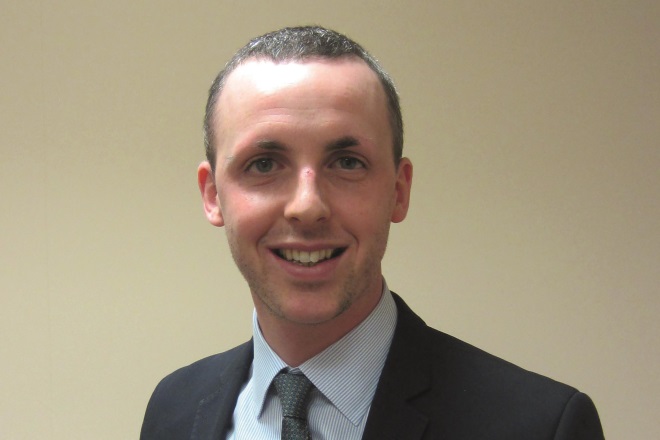
Source: National Voices
Drug companies should be open about the purpose of payments made to healthcare professionals, says Andrew McCracken, head of communications at National Voices, a coalition of 160 health and care charities
Andrew McCracken, head of communications at National Voices, a coalition of 160 health and care charities, says that if people are to have any control of decisions about their health and care they need full and accurate information.
“Many people will question why there is a need for pharmaceutical companies to pay healthcare professionals at all,” he says. “It is an understandable question as there is clear scope for conflicts of interest.”
He adds: “Pharmaceutical firms should be open and honest about the purpose of payments made to healthcare professionals and should be able to account publicly for any exchange of funding.”
References
[1] Cain DM, Loewenstein G & Moore DA. The dirt on coming clean: Perverse effects of disclosing conflicts of interest. Journal of Legal Studies 2005;34:1–25.
[2] Spurling GK, Mansfield PR, Montgomery BD et al. Information from pharmaceutical companies and the quality, quantity, and cost of physicians’ prescribing: A systematic review. PLoS Med 2010;7(10):e1000352. doi: 10.1371/journal.pmed.1000352
[3] Tattersall MH, Dimoska A & Gan K. Patients expect transparency in doctors’ relationships with the pharmaceutical industry. Medical Journal of Australia 2009;190(2):65–68.
[4] Katz D, Caplan AL & Merz J. All gifts large and small: Toward an understanding of the ethics of pharmaceutical industry gift-giving. The American Journal of Bioethics 2010;10:11–17. doi: 10.1080/152651161.2010.519226

